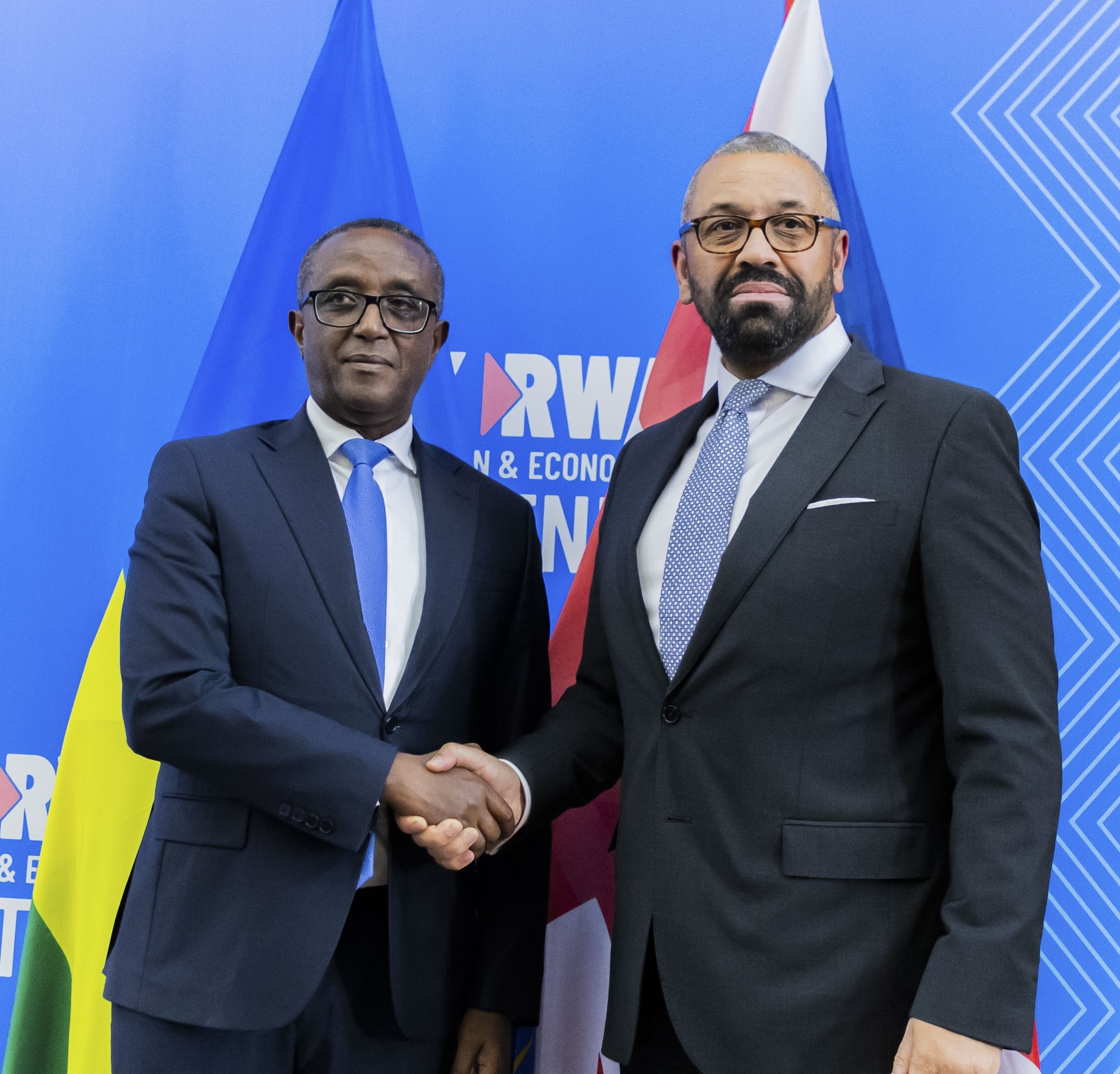In a joint announcement on Tuesday, December 5, Rwanda and the United Kingdom unveiled a new migration treaty aimed at reinforcing existing commitments to address concerns surrounding the safeguarding of asylum seekers. The signing ceremony took place in Kigali, presided over by Dr. Vincent Biruta, Rwanda’s Minister of Foreign Affairs, and James Cleverly, the UK Home Secretary.
The treaty establishes a binding framework that underscores both nations’ dedication to protecting asylum seekers. A key aspect of the agreement is the creation of a new appeals tribunal under Rwandan law, which will be supervised by two co-presidents. One of these presidents is expected to be Rwandan, while the other will hail from another Commonwealth country. Additionally, a diverse panel of judges from various nationalities will be introduced to adjudicate appeals in cases where asylum claims are rejected.
Dr. Vincent Biruta emphasized Rwanda’s commitment to safeguarding vulnerable individuals and highlighted the nation’s track record in providing refuge to migrants and refugees globally. Speaking at a press conference after the signing ceremony, he stated, “This partnership reflects Rwanda’s commitment to protecting vulnerable people and our country’s track record in welcoming and hosting refugees and migrants from around the world.”
Both Rwanda and the UK recognize the urgent need to find innovative solutions to alleviate the suffering of migrants undertaking perilous journeys under the exploitation of criminal human smugglers. Addressing the underlying causes compelling people to leave their homelands is crucial, according to Biruta. He asserted, “In other words, the boats will not be completely stopped unless we reverse the lack of opportunity and insecurity in countries around the world.”
The newly announced scheme, according to Biruta, aims to strengthen the mutually beneficial framework for cooperation between Rwanda and the UK. The collaborative effort underscores a shared commitment to addressing the challenges posed by migration and asylum issues while working towards lasting solutions.

